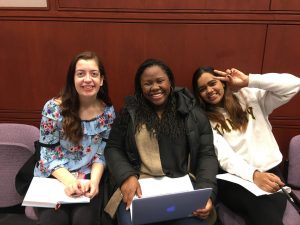The Education Committee’s public hearing on Friday, February 22nd, addressed a variety of bills https://www.cga.ct.gov/2019/EDdata/pha/pdf/2019pha00222-R001100ED-pha.pdf. Dianna Wentzell, the commissioner of the Education Committee, began the hearing by outlining certain stipulations regarding each bill. This included Senate Bill 813 which required the Department of Education to conduct “a study of issues related to early college and dual enrollment programs.” Wentzell said that the department “does not have the capacity to carry out these types of studies” and would need more funding to do so. She additionally commented on Senate Bill 814 which aimed “to require each local and regional board of education to conduct a test of the water supply for any school building or facility constructed before July 1, 1986, for the presence of lead.” Wentzell stated that testing the water supply should “not be the responsibility” of the Department of Education.
However, one of the most contentious bills seemed to be bill 7110, which aims “to require boards of education to revise their safe school climate plans to include provisions relating to disruptive or injurious incidents that occur in classrooms, to develop and implement a state-wide school climate survey, and to require the Department of Education to provide assistance to school districts relating to school climate.” Representative Bolinsky shared his comments on the bill, explaining that “Teachers have been knocking on my doors for a couple years for legislation to provide a safe climate for them.” He then poses a question “There is an awful lot of special education parents, families, and advocates out there concerned about the possibly of isolation separation, and social and emotional damage that occurs… How do you ensure there are protections in there so that we do not single out those on a special education program who may not always have control over their behavior?” Bolinsky concluded his statement by asking how we assure parents that this bill is not targeted towards their child or students with disabilities.
Wentzell then responded, articulating that she previously testified against a previous bill that she felt targeted students with special needs. She added that she was able to discuss issues in the previous bill with other individuals, saying that- “…we brought everyone together to push through.” I do think we have addressed most issues to make sure students with special needs are attended to appropriately.” One solution Wentzell proposed was administering a state wide school climate survey. In theory, this survey would serve as a check to make certain that schools were not perpetuating a culture where, as Wentzell explained “…parents start engaging in appropriate conversations about other children. However, Wentzell states that “The department does not have the financial resources to do so at this time.” Even though Wentzell mentions this setback for the Department of Education, she finishes her statement by emphasizing that “Groups are together to ensure that their (students with special needs) rights are protected.”
While bill 7110 proposes a safer school climate for students and teachers; questions still remain. Is there language in this bill that ensures that students with special needs are not targeted? How will the Department of Education study the longterm effects of this bill if there is no allowance in the budget for a state wide school climate survey?